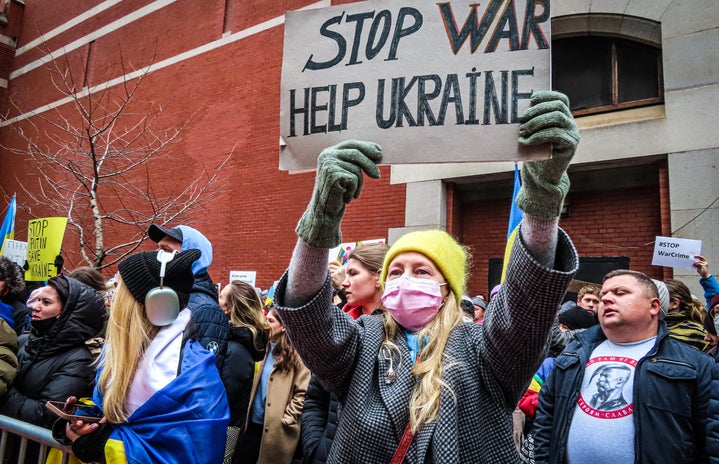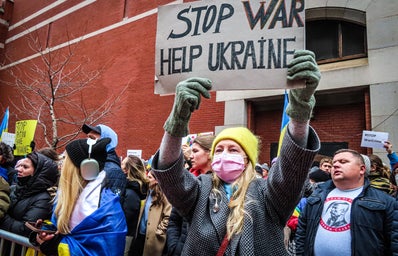Reading about wars, listening to war’s news and even watching movies about it can be such an indigestible thing to do. But nowadays, unfortunately, millions of people don’t have the option to choose: they are living it every single day. Seeing your country and your people suffering something they didn’t ask for and your youth being stolen so men can prove their power is something that is only descriptive if you actually experience it. Regarding this, the only way we can understand this sad reality is by listening to what these people have to say.
Anna Chepil, 18 years old, student
Anna is from a small city in the western part of Ukraine, Chernivtsi. The city hasn’t been attacked since the beginning of the war and it’s actually helping refugees from eastern territories where hostilities – she says – are taking place. About that, Anna told us that her relatives didn’t move abroad and are trying to help as much as possible the refugees in the city. Although she has lived in Sweden for some years now, the feeling of seeing her country at war is so relatable to her.
‘‘It’s actually so heartbreaking seeing your country being destroyed, seeing innocent people and kids dying. It’s unfair, no one deserves that! Kyiv and Kharkiv are cities that I used to visit a lot and places where I used to hang out with my friends are destroyed now. No one expected that the war would really start and this would happen to our beautiful independent country. I remember the day when I woke up and opened Instagram and saw messages from my friends that the war started, that was horrible.’’
Growing up in the middle of a war is something so unrealistic to imagine, even though, right now, many kids and young people are having to deal with their freedom being stolen.
‘‘Parents tell their children everything, because it’s simply impossible to hide it. Of course they tell everything as positively as possible, so they don’t scare them. They tell it as a story: bad people came to take our land.’’
There are government’s recommendation so people can organize their life in the middle of the chaos. Routine tasks are not simple anymore. The protocol is to stay at home, don’t post anything on social media that the enemy could use against the country and, when you hear sirens, you have to go to a bomb shelter or a basement. In addition to that, in places where the situation is stable, students are having online classes.
No one would expect the war would really start and this would happen to our beautiful independent country
‘‘My relatives are calling everyday to tell us they are safe, but scared. Everyday you can hear siren sounds about danger. Missiles are flying over my city, which are soldered to neighboring cities.’’
However, in situations of injustice and oppression, young people seem to mobilize and Ukrainians are not different.
‘‘Young people express their views harshly on social networks, they feel bad about what is happening in the country and they are trying to bring information to all other people. They are actively fighting for the values of the Ukrainian people, culture and language. According to Russians, they came to Ukraine to fight the Nazis, to save the Russian language in Ukraine…’’
the war and the youth
Furthermore, young people are directly fighting in the war.
‘‘I have some friends in the national guard in Kyiv, the capital of Ukraine. They defend the borders of the city. And I also have some friends in the army in cities where there is war. They are trying often to text home, that they’re fine and everything is good with them. The messages are short, because they don’t really have time. Calling is a rare thing.’’
Finally, Anna finishes talking about the good support that Swedish society is demonstrating.
‘‘People in Sweden are supportive of Ukrainians, help them and accept refugees. When they ask where you are from and you answer Ukraine, they immediately ask if you need any help or if you have any relatives left there. Sweden also provides Ukrainians with good living conditions in their country.”
————————-
The article above was edited by Bárbara Vetos.
Liked this type of content? Check out Her Campus Casper Libero for more!



